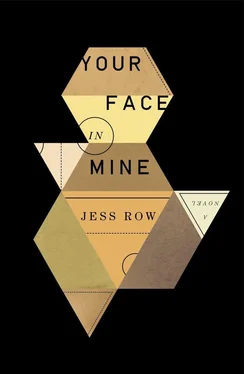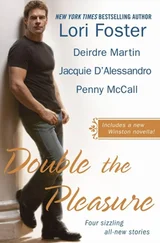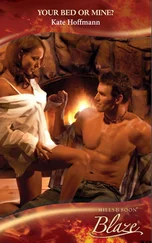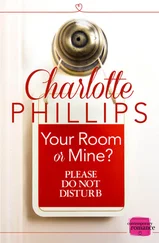That was all Willoughby’s doing. Dad’s last boyfriend. He was the one who turned me on to playing the bass. Dad would never have paid for music lessons, but Willoughby was right there, after all, a house fixture. He made me practice on a fretless bass before I even got to see a normal one. I could play the Allegro from Eine Kleine Nachtmusik on that thing. And after that it was all Seventies stuff. Steve Swallow, Ron Carter, Jaco, Genesis, Oregon, Pink Floyd. You could say it taught me to respect the instrument, I suppose. It gave me technique, though of course it wasn’t the technique that really mattered.
I would have said — looking at you — that you’d never heard hip-hop in your life.
I hadn’t heard hip-hop, he says, wiping his mouth delicately with a napkin and reaching for a third crab. Not in my conscious mind. Of course, it was there when I was at Shabazz. It was on the boom boxes. Kool Moe Dee, Roxanne Roxanne, Run-D.M.C. Probably I liked it as much as any kid. But that was rap , that was a dream, a lost era. We did breakdancing, too, when I was at Shabazz. Was anyone talking about breakdancing in 1991? It was just humiliating . Even when you guys listened to it I never paid attention. Public Enemy, A Tribe Called Quest, NWA: I missed all that stuff. Didn’t want to touch it. You can understand why. All those layers of repression, all that impacted shame.
And then what happened?
He laughs and spreads his hands out on the table, putting his thumbs down on the newspaper, now patterned with concentric spills of soda, crab juice, and brine. Why does this have to be a story about hip-hop? he asks. I mean, sure, later I listened to Biggie and Puff Daddy and Tupac and everyone else. But that was never my thing, really. Not exactly. For me it was reggae.
Reggae?
The house of blackness has many doors. Not everyone chooses the same way in. Jazz. Blues. Plantation hollers. Talking drums. Dance. Masks. Drag. All the different forms of the diaspora. Robin taught me that much. What I liked about reggae — what I didn’t like about rap — was that you just couldn’t beat it down. Even when it was angry it was still happy. It was still music . The thing is, too, reggae tells a story. I mean roots reggae, the real stuff, not that Beenie Man crap on the radio now. Reggae is its own world. A direct relationship to Africa. A direct descendant from the kings and queens. It’s a whole cosmos. Next to that, hip-hop is pretty weak. In my view. But I didn’t come to realize this until much later. When I was alive again. When I was receptive.
After high school. After Alan.
Yeah, he says, you’re right. We’re jumping ahead. But you asked the question.
You said you were alive again . Meaning what?
He turns and looks again at Davis, who’s doing a through-the-legs dribbling routine from one side of the court to another. His nostrils flare. An extra shot of oxygen. The throb of energy a moving body, a child’s body, this child’s body, throws off.
Meaning I was my true self, he says, meaning I was the person I am now, in embryonic form, anyway. This is hard for you to hear, isn’t it? How could it not be, right? But listen: high school was simple. I was in a band, thanks to you guys. I was some kind of punk rocker, indie rocker, by association, anyway. And the rest of the time, heck, I was studying . I’ll say one thing for Willow: all that shame, all that passive-aggressive, no-discipline, high expectations and no consequences stuff, it worked on me. I couldn’t look at Mrs. Walbert’s face when she was disappointed in me; she puffed up like a soufflé. So I learned chemistry. Whatever it was, whatever they put in front of me, I soaked it up, thank god. Don’t you remember that I won the Latin prize three years in a row?
To be honest, I say, no. I’d forgotten.
No, in high school, by that time, I’d found a niche. I was a busy little beaver. Up until the riots, at least, I was actually happy .
What about the riots?
Okay. Okay. Here we are. The final, the last, affirmation of my whiteness. He laughs, suddenly, as if he’s startled a flock of flamingos. You know what it’s like, talking to you? he says. It’s like what they say in AA about the trapdoor. You know that expression? You think you’ve hit bottom, but you’ve only hit a trapdoor.
Maybe that’s what memory is like, I say. And think: maybe that’s what friendship is like.
Yeah, he says, the past is a black hole and all. No worries. You’ll find a way to stitch it up. Don’t look so sad, Kelly.
I’m thinking about ’92. No happy memories there.
No, he says, so let’s be like the Special Forces and get in and get out, okay?
Davis climbs up the stairs from the courts, slugging from a bottle of Gatorade the color of antifreeze.
Have a seat, D, Martin says. Kelly and I were just talking about you. About colleges. You know, he went to Harvard.
Davis gives me the barest possible recognition, a tight little nod, and sits on the other end of my bench, making a triangle of the three of us. He has an impassive face, rounded around the mouth, and ears that seem too small and too high, little doughy squiggles above his long temples. A slightly goofy-looking kid, used to avoiding an adult’s gaze.
Grad school, though, I say. Pretty esoteric stuff. Chinese poetry.
I thought you were a reporter.
Kelly’s had many lives, Martin says. Like a lot of people. Like me. It’s the nature of the times. That’s why it pays to have options.
Does he sit and declaim like this all the time, I’m wondering, or is it just for my benefit? Look, I say, I really don’t know anything about the college game these days. Other than it’s harder than ever. You taken the SATs yet?
PSATs, he says. SATs in the fall.
Test prep this summer, Martin says. After his defense clinic at Auburn. You get your mom to sign the form?
She’s in Atlantic City. With Manny.
How long?
He shrugs. Aunt Doris is watching the kids, he says. Manny’s talking about getting a catering job up there. Keeps saying he’s going to move us all up there for school in September.
There’s no jobs in Atlantic City, Martin says. Economy’s dying. Now that there’s slots at every racetrack in the tristate. Plus Foxwoods. Plus the hurricane. I wouldn’t worry about it.
He’s got a friend, though.
A friend’s not a job. Job’s not your mom taking her babies out of Baltimore.
A fire engine races by on 29th Street, barking and screeching, sending a flock of tiny birds up into the air, where they form a cloud, a disk, and then drop all at once back onto the grass. Davis discreetly flicks through the messages on his phone.
Where else’d you go to college? he asks me.
Oh — Amherst. You know where that is? In Massachusetts?
Where Emily Dickinson’s from, he says, expressionless. We just did a unit on her. That’s a real place? I mean, it’s still there?
Yeah. Actually, it hasn’t changed that much. The buildings, I mean. It’s still a quiet little town. Great school, though. Really small classes. Why, I’m thinking, can’t I squeeze out a sentence longer than three words? Nobody falls through the cracks there, I say. You can’t be anonymous. You get all the attention you could ever want. On the flip side, you’re stuck with the same four hundred people for four years.
He gives me a look halfway between astonishment and disgust.
Four hundred people in the whole school ?
Davis, you have got to understand, Martin says. The really good places are small for a reason. Lots of advantages to that. Plus, it’s a tiny school sitting on a mountain of money. Get into Amherst and they’ll give you a full ride. Books, travel, everything. It’s the all-star league of the mind. Here, show Kelly that video you made.
Читать дальше












